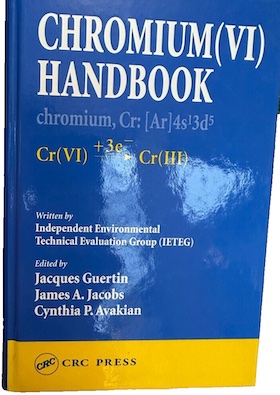
-----
Hexavalent Chrome. Why does it inhibit corrosion?
I removed a hexavalent chrome sealer from a coating system and the result was a dramatic decrease in salt spray performance. I need a substitute inhibitor and would like to understand the role that chrome6 plays when it performs it's part in inhibiting corrosion.
What is the actual affect of hexavalent chrome when it is used as a corrosion inhibitor on steel. Chrome6 is used as a sealer under various coatings. Does the chrome6 act as a barrier? Does it passivate the steel surface? Does it in some way interrupt the corrosion reaction/cell? What is the property of chrome6 that make it so effective? What other inhibitors could replace chrome6 in a water based coating?
Bob Wheeler- Cincinnati, Ohio
Hi Bob,
My experience with Cr(VI) products has been as a final rinse product following phosphating. The mechanism is thought to be two-fold. There is an electrochemical effect, where the presence of Cr brings steel from an actively corroding state to a more passive one. The other aspect is the deposition of highly insoluble Cr salts which are supposed to lodge themselves in the gaps in the phosphate coating and protect the uncoated areas.
I personally think that the electrochemical effect is the biggest contributor to the excellent protection offered by Cr-containing products.
Many alternatives to Cr have been proposed and have been sold in the marketplace. Almost all of them fail to provide the same kind of corrosion resistance that Cr products provide. Almost everyone who uses a Cr-free alternative to get away from the environmental problems associated with Cr is forced to make a compromise between dealing with the environmental issues and settling for poorer performance.
George Gorecki- Naperville, Illinois
Q, A, or Comment on THIS thread -or- Start a NEW Thread
